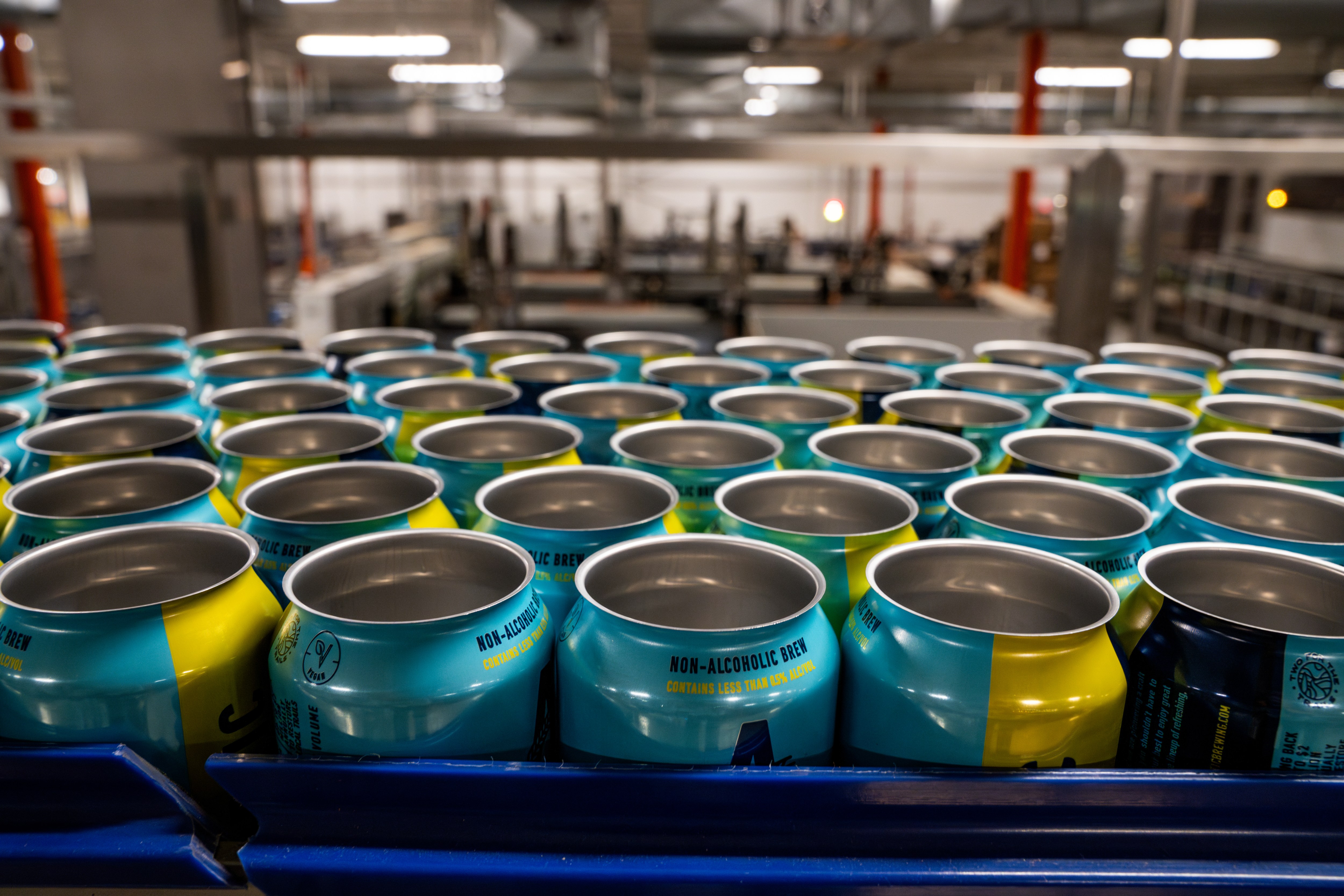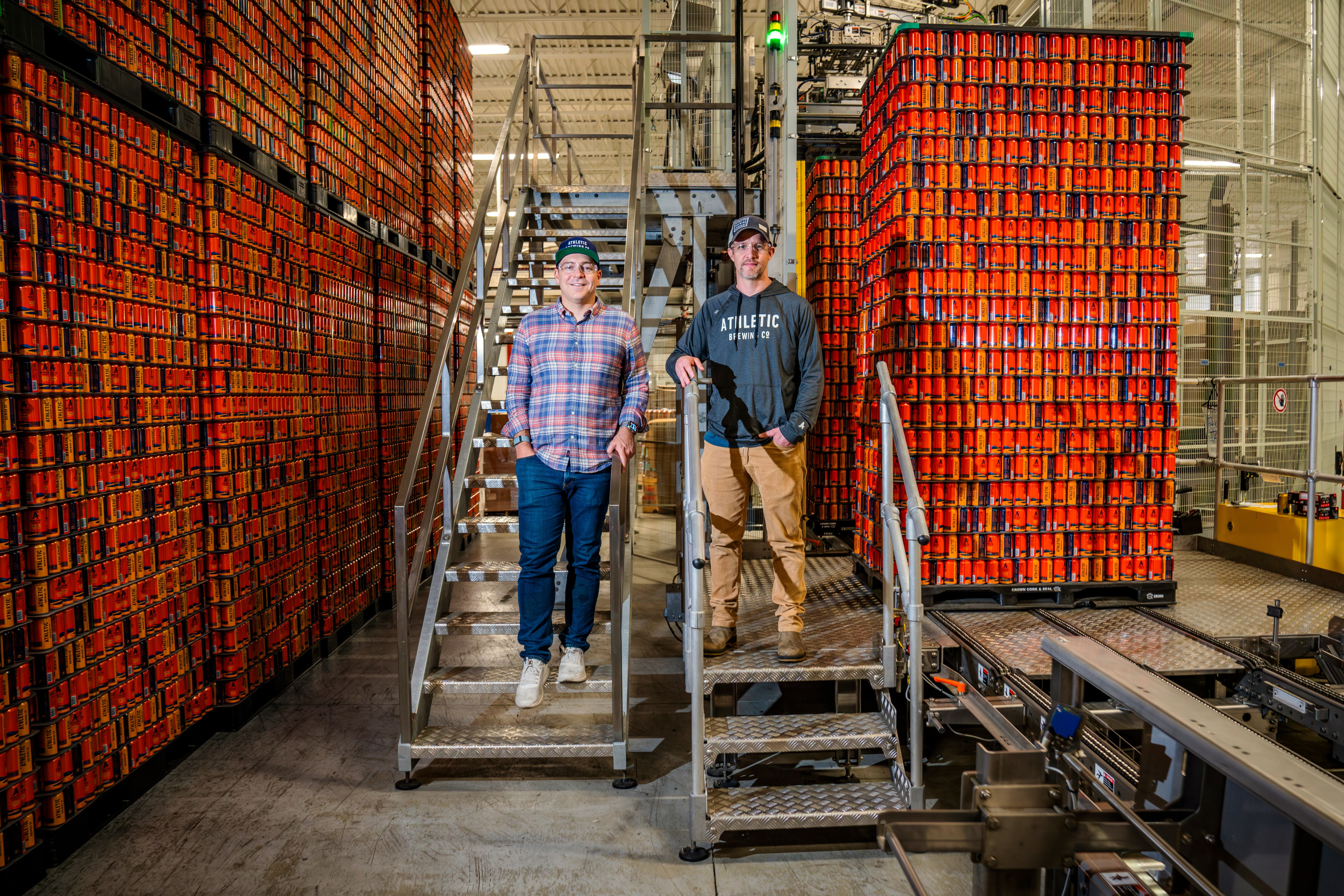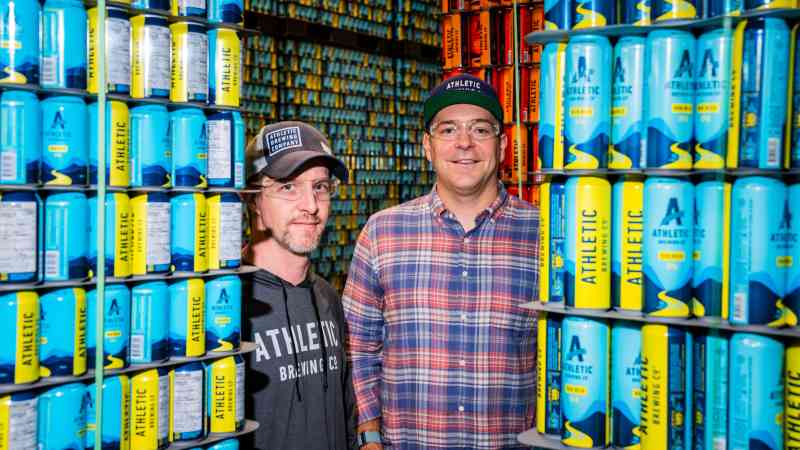When Bill Shufelt and John Walker launched their non-alcoholic craft beer six years ago, it was a drink that Americans didn’t know they wanted. Fast-forward to today and the co-founders of Athletic Brewing Company are running one of the ten largest craft breweries in the United States.
Theirs is the bestselling beer of any alcoholic or non-alcoholic variety at Whole Foods, the grocery chain owned by Amazon, and is also sold in Canada and Britain, where the brand was launched in 2021 and can be found in supermarkets such as Tesco and pub chains including All Bar One.
The business, which is understood to have been valued at $800 million in its latest funding round, sold more than 255,000 barrels last year; in 2018, that figure was only 875. In 2022 it opened a facility in Milford, Connecticut, that ranks as the largest dedicated non-alcoholic brewery in the world.
Yet according to Shufelt, 41, “we’ve almost been delusionally optimistic to a fault”. Indeed, when he first approached investors about the concept, nobody was interested. “We had no proof of concept, no developed product.”
Since then the company has built a strong group of backers, such as TRB Advisors, the family office of Timothy Barakett, the former hedge fund manager. Others include Keurig Dr Pepper, Alliance Consumer Growth, of California, and General Atlantic, the American private equity firm that led the latest $50 million fundraising in July.
The idea for the company came when Shufelt was a 30-year-old hedge fund trader living in New York, going out drinking most nights of the week with market contacts and friends. To outsiders he appeared to be a young man in his prime, with a highly paid job at Point72 Asset Management, the Connecticut-based fund run by Steve Cohen, owner of the New York Mets baseball team.
Shufelt, however, felt differently. “I was having one or two down days a week, where I’d had a few beers and would not feel great.” He would skip a workout, make bad diet choices and sleep poorly.

He gave up alcohol to train for an ultra-endurance sports event and was surprised by the impact. He immediately started to sleep better, was sharper at work and felt “intellectually curious” again. He decided to stick with it.Shufelt realised that there must be a market for people who want to go out for dinner or for drinks with friends without feeling the after-effects of alcohol the following day — and he couldn’t find anywhere with a decent range of non-alcoholic options that weren’t aimed at children.
“There were so many times in New York when I’d sit down to an incredible pasta dinner with my wife and I’d ask, ‘What do they have that pairs well with this?’ They’d say, ‘A diet soda or water?’ It would ruin the meal.”
He probably would have done nothing about it if it wasn’t for his wife, Jacqueline, a former marketing manager for Oscar de la Renta, hitting him on the shoulder one evening “so hard I’ll never forget it” while he was complaining about the non-alcoholic drinks options on menus on the way to dinner.
“You should fix it,” she told him. It took a further two years of pulling together a business plan in between the day job before another intervention beckoned.
• No alcohol? No problem as sales boom in the UK
Shufelt had returned from a ski trip and was preparing to go back to work after the new year in 2017 when his wife sat him down and said: “I’ve read through the whole business plan and materials and everything and I want you to walk in on the first [day] of the year and quit your job.”
When he advertised for a business partner and brewer, he received hundreds of rejections from people in the industry. Then he heard from John Walker, a skilled brewer who also had grown up in Connecticut and understood the appeal of a craft beer with no alcohol. Walker, now 44, joined the venture and the duo spent about nine months developing no-alcohol beer in Gatorade jugs.
Walker insisted on finding new recipes to improve the taste of zero-alcohol beer from existing options on offer from leading drinks brands. “Instead of creating one single lager, we’ve crafted a couple of custom recipes to fit different styles of brews,” he said. “We focus exclusively on non-alcoholic beer. It’s what we do 100 per cent of the time. With other companies, it’s one scheme in a bucket of a hundred.”Traditionally, non-alcoholic beer has been made by removing the alcohol by filtration or by burning it off, before re-adding some components. According to Walker, Athletic Brewing, which keeps its recipes secret, uses “a dozen or so steps along the way that we will tweak a little here a little there and we will come out with a fully finished product that is good to go.“Our theory and practice and belief was that the less you touch these incredible ingredients, the better off you are and the better off the consumers are, because they are going to get to enjoy these incredible ingredients as they were designed.”

The co-founders refused to slow down their expansion during the pandemic. “On March 17, 2020, we signed for our west coast facility, by far the biggest investment we have ever made in San Diego, and then the world shut down,” Shufelt said. “I think at all times I thought it [the pandemic] was going to be over in two weeks. There was also a really big advantage because all of our big corporate competitors ground to a halt.”
By 2023 the company, which does not disclose its profits, generated $90 million in revenue. It has a 19 per cent share of the American domestic market for zero-alcohol beer and is driving 32 per cent of total non-alcoholic beer category growth, according to NielsenIQ data. Its products have won more than 100 brewing awards and are sold at more than 75,000 locations in all of America’s states.
Are the drinks healthy? “It’s not that it is healthy for you, it is more about what it isn’t. And it isn’t alcohol,” Keri Glassman, a New York-based nutritionist and the founder of the Nutritious Life Studio, said. “Alcohol not only adds calories — and yes, Athletic Brewing Company does have calories, too — but it also disrupts your sleep, which can affect how much you eat the next day, as well as how well you function.”
Sports companies have embraced the concept. This month Athletic Brewing was announced as the first official non-alcoholic beer partner of Arsenal FC, which will stock its Run Wild IPA beer at the Emirates Stadium in London.
The company, in which every employee is an equity owner, is eyeing opportunities to expand into new overseas markets and its founders say they would consider an initial public offering in future. For now, Shufelt said, “there’s a lot to like about just being a private company, being able to move really fast and not having to deal with all the regulatory friction that comes with being a public company”.
His working life has changed dramatically since he was a trader starting at 6am and leaving at 6pm for drinks and dinners, regularly having off-days. Now, as soon as his “feet hit the floor” in the morning, he is thinking about the business and he doesn’t stop thinking until he goes to bed. It is, he said, “incredibly rewarding”.
